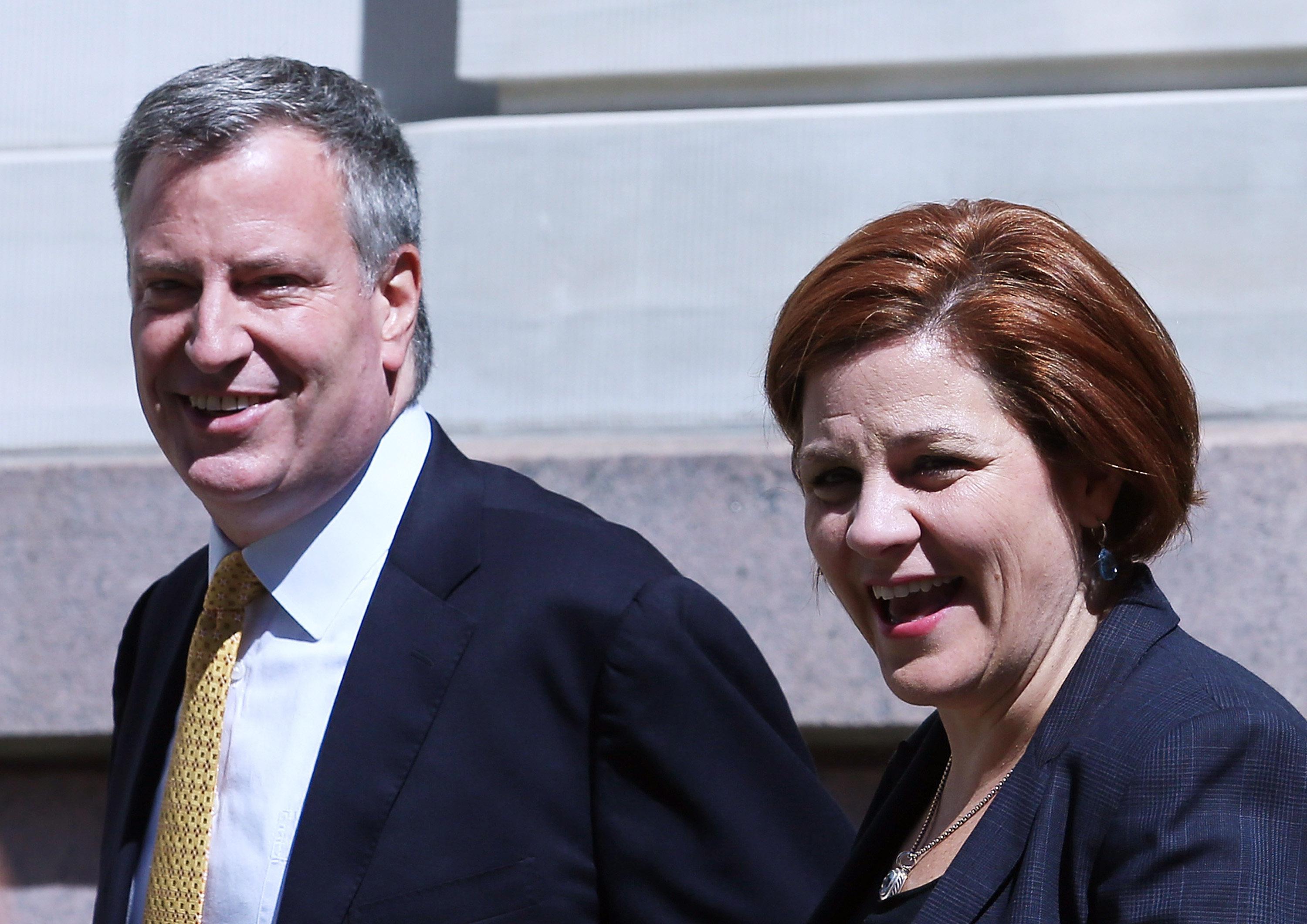Alex Burns and Maggie Haberman roll three recent events into a trend, like we’re supposed to in this trade called journalism. Exhibit A: Bill de Blasio turfing Christine Quinn* to become the presumptive mayor of New York. Exhibit B: Larry Summers taking himself out of the Fed race after a critical mass of Democrats opposed him. Exhibit C: Bill Daley, former Clinton commerce secretary and Obama chief of staff, giving up on a primary bid for governor of Illinois. This, say Burns/Haberman, is a dark time for “Wall Street Democrats,” although there are rays of hope:
If rhetorical attacks on financial power have worked for a handful of Democrats so far in 2013, operatives caution that it’s still something less than a partywide strategy or a good-in-all-time-zones method for upending wealthy opponents. Perhaps the two most prominent Democratic candidates of 2013, Virginia gubernatorial nominee Terry McAuliffe and New Jersey Senate nominee Cory Booker, have been far from hostile to big business; if anything, they have drawn complaints from their fellow Democrats for their overly accommodating view of the so-called 1 percent.
Maybe it’s worth breaking down what happened in the three defeats of what we will call, in shorthand, WSDs.
- In New York, de Blasio was able to run against “the 1%” because said “1%” wasn’t able to bury him with money. Quoting Alec MacGillis, donations are capped below $5,000 for individuals, and “each dollar that a donor gives to a candidate for city office, up to $175, is matched by six dollars in public funds.”
- In the Senate, Larry Summers was trying, or counting, to win over Democrats who didn’t have to worry about elections. The White House and its allies had no real leverage over Elizabeth Warren and Jeff Merkley as they lit into Summers.
- In Illinois, Bill Daley struggled to raise money, and wasn’t helped by a 2009 campaign finance law passed in the wake of the Blagojevich scandals. That law capped donations and forced new disclosure of checks larger than $5,000. Also, relevantly, Daley is a deeply overrated figure who failed spectacularly in his last two political roles.*
Compare these scenarios to Virginia and New Jersey. Neither state has very serious campaign finance laws, a fact that’s currently wounding incumbent Virginia Gov. Bob McDonnell and his would-be successor, Ken Cuccinelli. (They got caught out in an endless gifts scandal by the great Washington Post reporter Rosalind Helderman.) In a public financing or matching system, progressives might have been able to strengthen challengers to McAuliffe or Booker. Absent that, they either skipped the fight (Virginia) or got buried (New Jersey).
*Chief of Staff and 2000 Gore campaign chairman.
